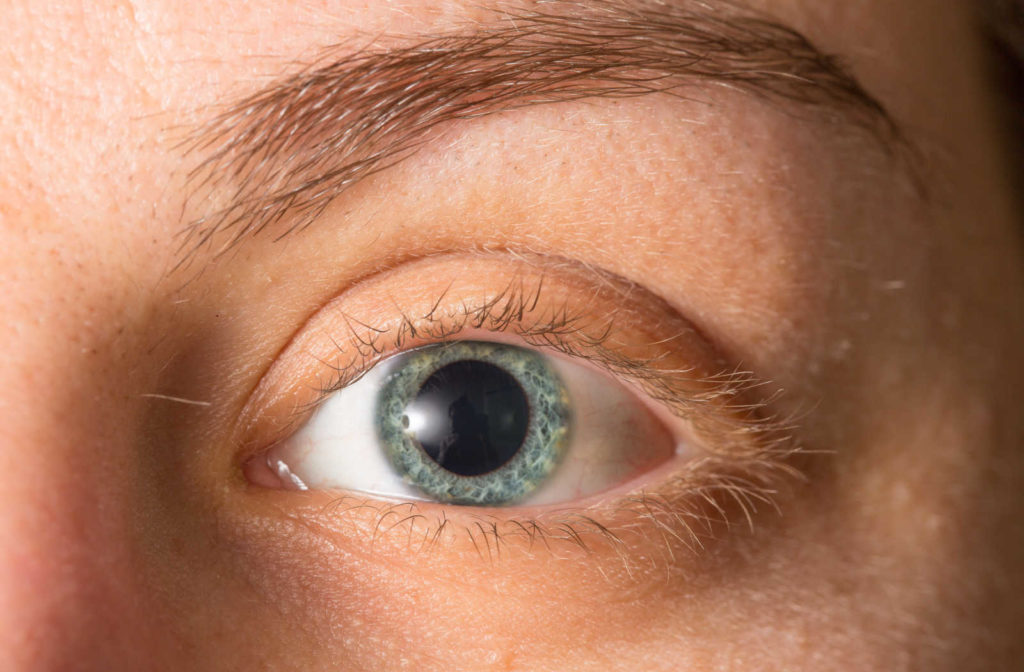Regular eye exams are crucial for monitoring changes to your eyes, early detection of eye diseases, updating prescriptions, and maintaining healthy vision. During an eye exam, your eye doctor uses several tests to examine your ocular health.
One of these tests can include dilating the eye to allow more light to enter and view the back of the eye. So what’s involved in eye dilation, and is it safe to drive with dilated eyes?
Let’s find out by discussing eye exams, dilation, how long it takes, and how long the effects last.
Comprehensive Eye Exams
You might not give much thought to your eyesight until you realize the world is fuzzy and you need glasses. We may take eye exams for granted, but they help us stay on top of any eye-related issues that can potentially affect our vision.
Tests during an eye exam can include but are not limited to the following:
- Visual acuity: Visual acuity is how well you can see at varying distances to determine if you have a refractive error.
- Refraction assessment: With the help of a phoropter, your eye doctor can determine the prescription required to correct a refractive error.
- Slit lamp test: This uses a bright light to examine the eye in detail and can include dilating the eye.
- Glaucoma testing: A tonometry test measures intraocular pressure for glaucoma.
- Retinal imaging: This test allows the eye doctor to see a high-definition detailed image of the retina to monitor changes.
Eye Dilation
During a comprehensive eye exam, your eye doctor can choose to dilate your eyes using dilating drops to widen the pupils and allow more light to enter. It can take 20 to 30 minutes for the eye to dilate fully.
Using light, your eye doctor can check pupil response, eye muscle function, and peripheral vision. Dilation makes it easier to view the back of the eye, including nerves and blood vessels, which is crucial for detecting and diagnosing certain eye conditions in their early stages.
Eye conditions can include:
- Detached retina
- Eye tumor
- Diabetes
- Diabetic retinopathy
- Glaucoma
- Age-related macular degeneration
- Cataract
- High blood pressure
How Long Does the Effects of Dilation Last
Your eyes can remain dilated well after the eye exam is complete. The lasting effects of the dilating eye drops vary in individuals but can last 4 to 6 hours.
Factors that can affect how long the eyes remain dilated include:
- People with lighter-colored eyes can experience longer dilation than darker-colored eyes.
- Children can experience a longer dilation that can last up to a day.
- The type of dilation drops used can affect the length of time of dilation.
Is it Safe to Drive with Your Eyes Dilated?
Your eye doctor can’t predict how long your eyes will remain dilated, especially if it’s your first time. They may recommend you avoid driving and have someone drive you home after your eye exam.
You may experience some stinging immediately after the drops go into your eyes. With pupil dilation, the eyes remain wide open and can’t control how much light enters. For this reason, you can experience the following side effects:
- Blurry vision
- Sensitivity to bright light
- Difficulty focusing on close-up objects
Here are some things you can do to manage the side effects of pupil dilation:
- If you are a contact lens wearer, you can out them in after the effects wear off.
- It’s a good idea to bring a pair of sunglasses to protect your eyes from glare and bright sunlight.
- Maybe take some time off work as close-up focusing, such as looking at a computer screen or reading, can be difficult on dilated eyes.
Eye Dilation at Eye Care Plus
Eye dilation may be necessary for some individuals to detect early signs of vision-threatening eye conditions. The effects may be uncomfortable initially, but the benefits far outweigh the temporary side effects.
Some people may feel comfortable driving after. However, despite not knowing how long the effects last, it’s always better to be safe and arrange for a friend or family member to drive you home.
If you have a comprehensive eye exam booked at Eye Care Plus, contact us if you have any questions or concerns about a dilated eye exam.



